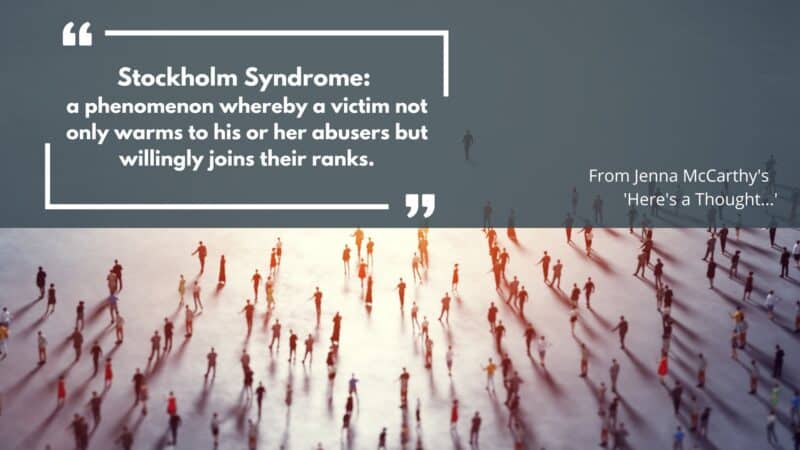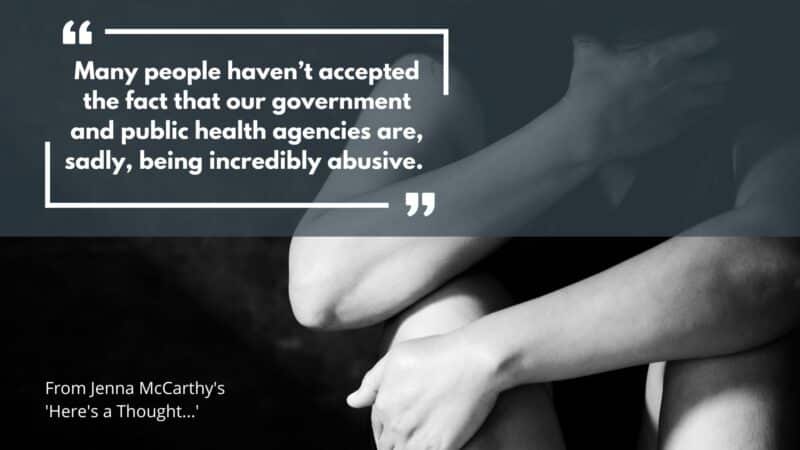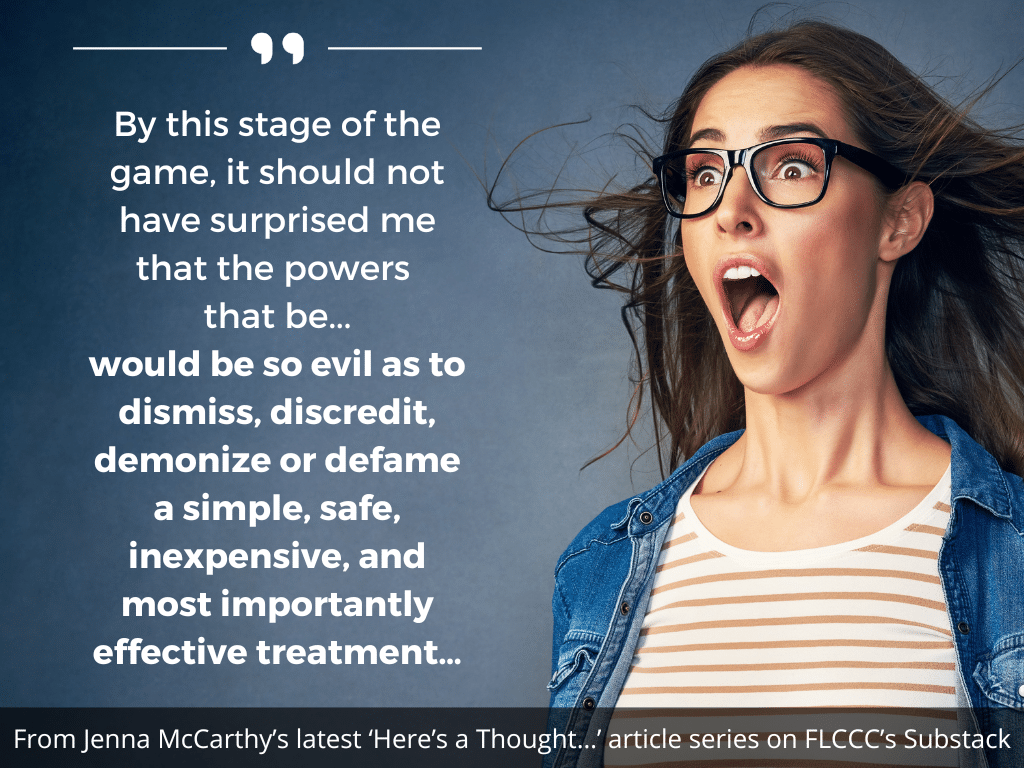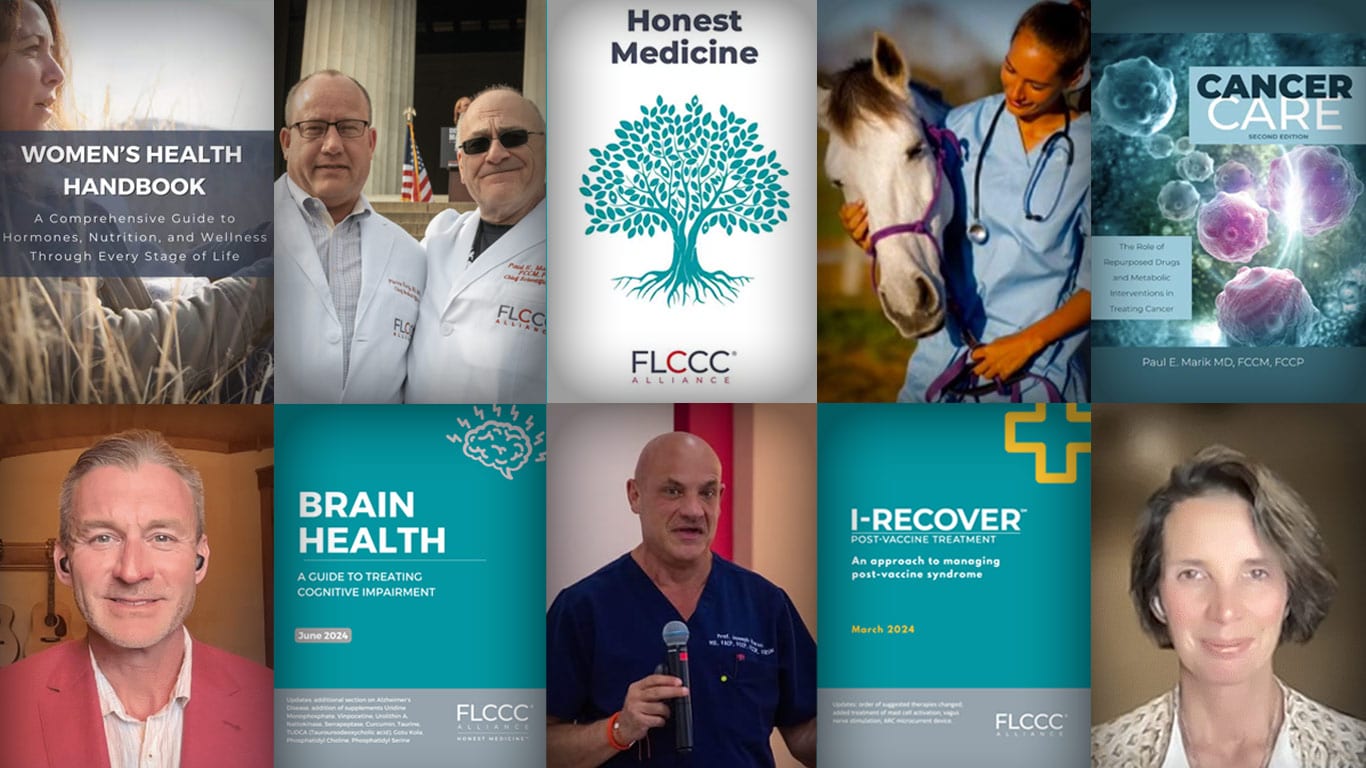The first step is to help them recognize that they are in an unhealthy situation.

Anyone who was around in the 1970s knows about Patty Hearst, the publishing industry heiress who was kidnapped at gunpoint by a one-hit-wonder guerilla terrorist group known as the Symbionese Liberation Army (SLA).
During her captivity, Hearst was blindfolded, raped, threatened with death, and kept for weeks in a closet. Hearst later testified that she had been offered a choice of being released or joining the SLA. Strangely (to people who have never been kidnapped, I suppose) she chose the latter.
Hearst went on a notorious crime bender, participating in the making of explosives that were used in two attempts to kill police officers and at one point — armed with an assault rifle — robbing a San Francisco bank alongside another SLA “soldier.” A grand jury later indicted her for the holdup.
Her story was both sensational and unfathomable. How and why would a hostage not only sympathize or cooperate with her brutal captors but refuse an offer of release and then join them in criminal activity?

The answer is Stockholm Syndrome, a psychological term coined after hostages were taken in a six-day-long bank siege in Stockholm, Sweden in August 1973. It’s a phenomenon whereby a victim not only warms to his or her abusers but willingly joins their ranks. It’s a defense mechanism; a survival strategy.
“Once they don’t kill you, you start to think they’re nice,” Hearst later explained in an interview with Larry King. “They get nicer every day they don’t kill you.” As bar-setting goes, trauma bonding is basically rock bottom.
With as much respect as I can muster, I think rock bottom is where some COVID holdouts are hanging out these days without even realizing it. I’m talking about the ones still wearing masks alone in their cars and counting down the days until their next booster and applauding when another highly respected medical expert gets labeled a “conspiracy theorist” and has his or her social media accounts shut down or medical license threatened.
People experiencing Stockholm Syndrome share a handful of characteristics that might sound eerily familiar:
- A belief in the goodness of their abusers.
- Negative feelings toward anyone who tries to help or rescue them.
- An unwillingness to hold wrongdoers accountable for their actions.
- Little or no effort to escape.
When it comes to COVID holdouts, the heartbreaking reality is that they clearly don’t realize they are victims. (Spoiler: Forced medical experimentation is blatantly, aggressively criminal.) They also haven’t let themselves accept the fact that our government and public health agencies are, sadly, being incredibly abusive. (Think about it: If your spouse destroyed your business, ruined your professional reputation, wrapped your child’s face in a dirty rag, withheld lifesaving medication when you were on your deathbed, or demanded you put anything whatsoever in your body against your will, would you stick around?)

“It could be worse!” the holdouts chirp optimistically. “They’re just doing what they need to do. It’s for our own good.”
We all know at least one COVID holdout, and in all likelihood, we want to help them. It’s worth noting that Stockholm Syndrome isn’t a mental disorder; it’s part coping mechanism, part post-traumatic stress disorder. As such, the first step in treating it is to help victims recognize that they are in an unhealthy situation. Gentle questions such as, “Why do you trust companies and agencies with lengthy criminal histories?” and “Do you believe that science is settled because one person says it is?” can begin to pave the way to eventual enlightenment.
Of course, it’s possible they won’t listen. Sometimes, people we love are stuck in a place where “gentle questioning” isn’t going to cut it. If you have any suggestions for facilitating or expediting the awakening process, please share them in the comments. You never know who you might help.
Jenna McCarthy is a speaker and the author of a few dozen books for adults and children. Her writing will appear here monthly, in a new column called “Here’s a thought…” Subscribe now to get the series in your inbox, along with the rest of FLCCC’s news and updates.
More on: Adverse Events | COVID Holdouts | Here's a thought... | Jenna McCarthy | Pandemic Policy | Stockholm Syndrome





